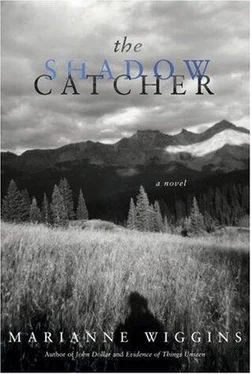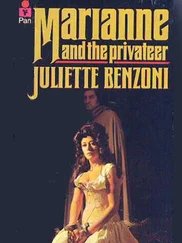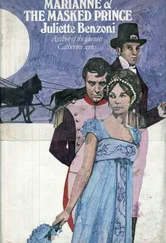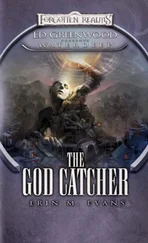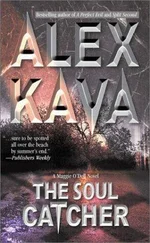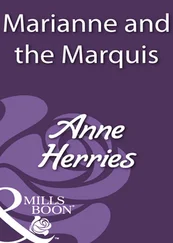“If you don’t know how to find a doctor, then find Asahel and tell him.”
“We know what to do.”
They left and she was alone with Edward in the house he’d built. He stared straight ahead. “What place is this?” he asked.
She sat near him on the bed and looked at him carefully, afraid that he might be lapsing into insentience again.
“This is the house you built,” she said, starting, very slowly, to straighten one of his legs and then begin to massage it, very lightly, with both her hands, feeling for alignment in his bones.
“I’ve never seen this room,” he argued.
“You have,” she told him, continuing to work to straighten both his legs. “Your initials are right over there, carved in that beam, see them? ‘E.S.C.’”
“No, this is different.”
“How?”
“This is not the room I know. Something is different. The walls. They’re white.”
“I painted them.”
“These pictures.”
“Those are my father’s paintings.” She unlaced his shoes and prised them off, keenly observing him for any register of pain.
“I tell you,” he said, still looking around, “I would not recognize this room as a place that I have seen before. Except the ceiling. I recognize the ceiling.”
“I’m going to have to cut you out of these pants, Edward—”
“No.”
“—to see where there is bruising.”
“You will not cut these pants.”
She removed his stockings and asked him to wriggle his toes. He did, in silence. The pants, she said. She laid a hand on one of his shins. It hadn’t escaped her notice that the pants were doeskin, nor had she failed to note how soft — almost sensual — they were.
“No cutting,” he repeated. “There’s a drawstring,” he proposed and started to untie the knot at his waist.
“No, don’t move,” she said, “I’ll do it. You lie still.” She unslipped the knot and slid the waistband open. She had never seen a pair of pants designed like these.
“They’re hand sewn,” he said.
“I can see that,” she replied and began to shimmy the fabric down around his hips. He looked away, toward a corner of the room as his naked body was exposed. “Whose sea chest is that?”
“Mine,” she answered — then, noticing the blossom of discoloration on his hip, said, “Here it is.” She touched his skin. “This is where you landed…” She slid the pants over his thighs and knees and feet, then held them up to look at them, hardly aware that he lay exposed. The pants were extremely light but what made them extraordinary in her eyes was that they were lined on the inside, top to bottom, with aged royal blue silk taffeta, the smoothest taffeta she’d ever felt, as if from a deceased contessa’s dowry.
“I made them myself,” he said. “To my own specifications. Took a month. Very practical. Lightweight, water resistant, but still sturdy.”
And pretty , she assessed. She folded them, then turned back to examining the point of impact on his body. Again, Edward looked away when she touched him. Roll this way, she signaled and helped him roll to the side that hadn’t been bruised.
“Where did you learn this?”
“Learn what?”
“What you’re doing.”
“I don’t really know what I’m doing…”
He looked at her sharply, as if she had crossed him. “You do. I can tell.”
She rolled him back over. Let’s take your shirt off, she said, and as they struggled him out of his sleeves she told him, “Before my parents were killed. In St. Paul. I studied nursing. It’s what I wanted to do in my life.”
“Women want that?”
“—want what?”
“Something to do in their lives.”
“—well of course.”
“Not the women I know.”
“—and how many is that, Edward? — two?”
He almost smiled.
“Three. Counting you.”
Now roll onto your stomach, she told him. “I’ll help you.”
Nothing back here, she reported. No bruising, no marks. “Other than here ,” she said, cupping his hip, “are you in pain anywhere else?”
He shook his head. Shaken up, is all, he said. He began to shiver. She positioned pillows behind him and coaxed him to relax, drawing one of Amelia’s linen sheets over him, topped with a damask featherbed and she watched his long expressive fingers assess the expensive counterpane. She tucked the bed linens around him and said, I have an idea. “Stones,” she told him. “Heated stones. They’ll draw your attention away from the pain. It’s a trick I learned on the train when—” He gripped her hand — forcefully, then made it tender — as if he waited to make these physical gestures toward her only when she least expected them. Or when he least expected them. Or when he no longer had any control over himself. Thank you , he said. He caressed her fingers with his own. “If you hadn’t been there—” His blue eyes nearly floored her.
“But,” she started to say. “…I’m the reason that you fell.”
“What do you mean?” She colored. “Oh, that .” He released her hand. “You’re not to blame. The gunshot startled me.”
So intimate and yet not intimate at all. Clara did not know how to interpret most of everything he said to her, or did, so she fell back to the safe practice of nursing him. “Are you hungry? I boiled a chicken this morning and there’s broth—”
“ Broth ,” he said the word as if beginning to recite a prayer.
“I’ll bring you some. And heat the stones—”
He gripped her hand again. Is that you? He nodded toward the portrait of Amelia pinned up on the wall.
That’s my mother, Clara said. Painted by my father.
“He painted all of these?”
She nodded.
“And he made a living from it?”
He let go of her hand in another of his abrupt transitions.
“He made a life,” she said. “A very happy one.”
“A life,” he repeated.
She touched his arm. Will you be all right on your own while I go into the kitchen?
If you give me something to do.
— to do, she said. She looked around.
I must be doing something, he explained.
Of course you must, she understood, going to the Icarus chest and extracting several books. “These ought to keep you busy. — Dutch? — or, no, here — this one was my father’s. In Italian, but there are pictures—”
She went to the kitchen, refreshed the fire in the stove and set about making a tray of bread and soft-boiled eggs and broth to take to him. She caught a shadow of herself reflected in a pane of glass of the cabinet and it brought her up short, the shadow of herself, looking like a hospital intern, cotton shift hanging off one shoulder, hair unkempt.
When she returned carrying the tray she found him tossed back on the pillows, arm across his forehead, shading his eyes, as if he had just survived an agony. He said, “There’s a chance that I’ve been blind my whole life.”
Well that’s possible, she told him, “but I doubt it. Sit up, Edward. Have some food.”
He gripped the book she’d given him. Where did this come from? he asked.
“My father brought it back from Florence.” Italy , she added. She set the tray down, rolled back the bedsheets and placed a heated stone on his right hip and another on his thigh. Then she covered him again and set the tray beside him. There was service on the tray for one. Aren’t you eating? he asked.
She fed him bread dipped first in egg and then in broth. “Do you feel the stones?”
He nodded.
“We need your mother here to pray to God — forgive me — that you haven’t shattered your pelvis, Edward,” she told him. “Here, I’ll show you—” She dug in the Icarus chest until she came up with a heavy tome with the words ANATOMIE/DAS SKELETT etched in gold on its green leather. She sat on the edge of the bed, turning pages. Beautiful book, Edward said. He ran his fingers down its padded edge. “Handsomely made. I thought only Bibles were as beautiful as this.”
Читать дальше
